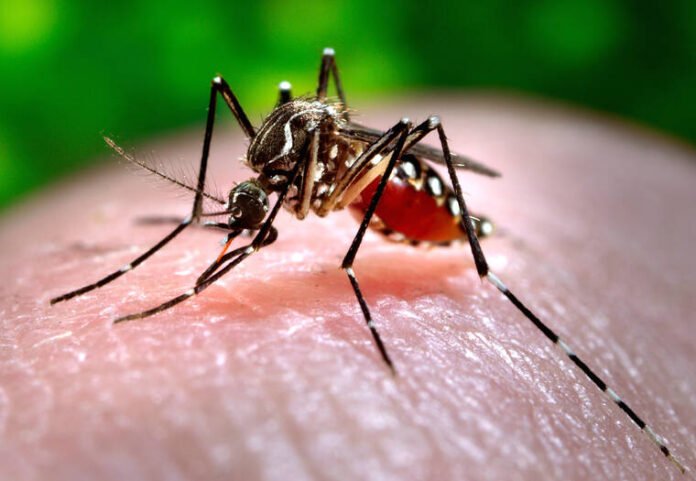The Hawaii Department of Health on Friday confirmed another case of travel-related dengue on Oahu, bringing the total reported in the state to nine so far this year.
The latest case comes almost two months after the eighth case of dengue, which was also on Oahu.
Like previous cases, this individual was likely exposed to the virus while traveling in a region where dengue is common, DOH said in a news release, and teams have been deployed to “implement mosquito control measures in the affected area.”
The department did not disclose where on Oahu the case was confirmed, but recommends taking steps to reduce risks while traveling as well as after a trip to dengue-endemic areas.
To date, there have been eight cases on Oahu and one on Maui.
Health officials in April urged greater vigilance in the islands due to a “sharp rise in dengue around the world and in Hawaii.” In 2024, DOH confirmed 16 Hawaii cases of travel-related dengue, including 11 on Oahu, four on Maui, and one on Kauai.
Don’t miss out on what’s happening!
Stay in touch with breaking news, as it happens, conveniently in your email inbox. It’s FREE!
DOH also issued a medical advisory in April recommending that health providers test all persons with symptoms such as fever and rash for dengue, regardless of recent travel history.
Dengue is a viral illness which can be transmitted from an infected person to a mosquito to another person via a mosquito bite. While Hawaii is home to Aedes mosquitoes, which can carry dengue, the disease is not endemic, or established in the state.
DOH recommends reducing mosquito populations by eliminating potetial breeding sites around the home by emptying out standing water in buckets, water-catching plants, small containers, and even cups left outside. Mosquitoes only need small amonts of standing water to breed.
Symptoms of dengue include the sudden onset of fever, severe headaches, nausea, vomiting, muscle and joint pain, and rash, which typically last two to seven days.
While severe illness can occur, most people recover within a week.
Some countries reporting increased dengue cases include Fiji, French Polynesia, Tonga, the Philippines, Brazil, Colombia and Mexico.
DOH said travelers should review country-specific travel information for guidance on dengue risk and prevention measures at least four to six weeks before traveling.
Upon returning from dengue-endemic areas, residents should take precautions to prevent mosquito bites for three weeks. If dengue symptoms develop within two weeks of return, residents should seek medical evaluation.
Health care providers and individuals who suspect a dengue infection are advised to call DOH’s disease reporting line at at 808-586-4586.






